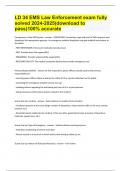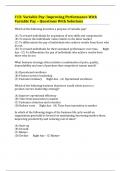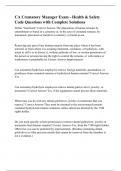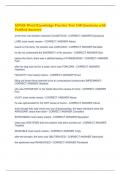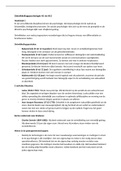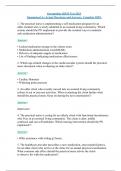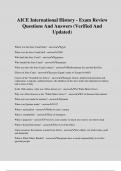Exam (elaborations)
LD 34 EMS Law Enforcement exam fully solved (download to pass)100% accurate
- Module
- Institution
Components of the EMS System - DISPATCHER: Coordinates type and level of EMS response and dispatches the appropriate agencies. An emergency medical dispatcher may give medical instructions to the public. - FIRST RESPONDER: Entry level medically trained person. - EMT: Provides basic life support/...
[Show more]
